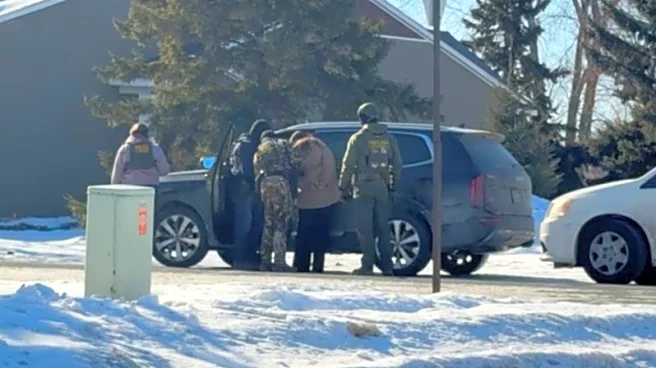What's Happening?
Chester County has appointed the law firm Fleck Eckert Klein McGarry, LLC to conduct an independent investigation into the omission of third-party voters from poll books on Election Day. The decision follows
an evaluation of ten law firms, with FEKG chosen for its expertise in complex investigations and election-related legal issues. The firm will investigate the root cause of the incomplete poll books, assess the processes and controls within the Department of Voter Services, and determine why these processes failed. The investigation will also explore other contributing factors to the failure and the delays experienced on Election Day. The firm is expected to present its findings and recommendations by December 19, 2025, with a public meeting scheduled for January 2026. Chester County extended voting hours until 10 p.m. after realizing the omission of third-party voters, which include Independents, Libertarians, and non-affiliated voters.
Why It's Important?
The investigation into the poll book issue is significant as it addresses potential flaws in the electoral process that could disenfranchise a substantial number of voters. With approximately 75,000 third-party voters in Chester County, the omission could have impacted election outcomes and voter trust. Ensuring accurate and inclusive poll books is crucial for maintaining the integrity of elections and public confidence in the democratic process. The findings of this investigation could lead to improvements in election procedures and prevent similar issues in future elections, thereby safeguarding voter rights and participation.
What's Next?
The law firm will begin its preliminary work immediately, with findings expected by December 19, 2025. The results will be shared in a public meeting in January 2026, allowing for transparency and public scrutiny. Chester County officials have capped the investigation cost at $35,000, indicating a commitment to resolving the issue efficiently. The investigation's outcome may prompt changes in election protocols and training for voter services staff to prevent future occurrences. Stakeholders, including political leaders and civil society groups, may react to the findings, potentially influencing policy changes at the county or state level.









